Special educational needs: 'Why should my autistic son face a bleak future?'
- Published
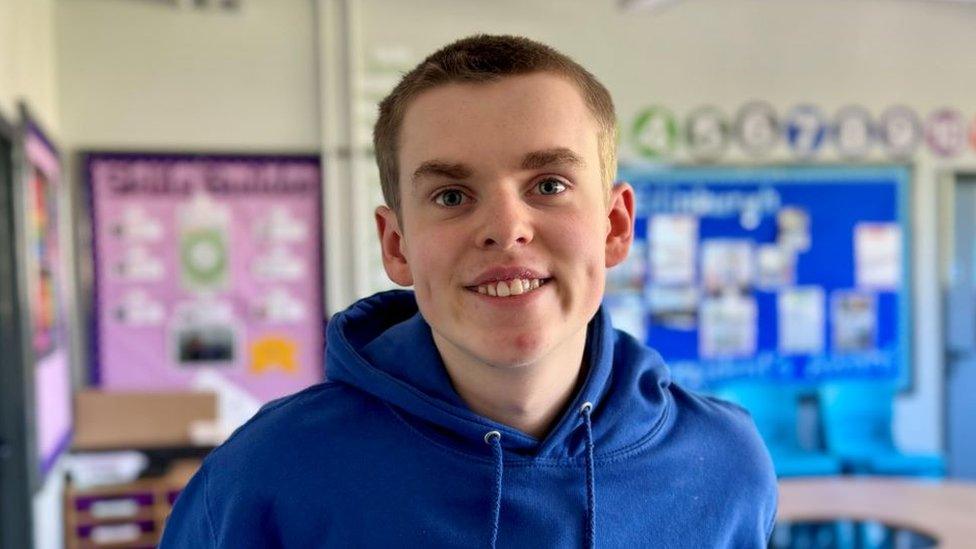
Children with special educational needs (SEN) face a "cliff edge" when leaving school, a principal has warned.
James Curran was speaking after a family told BBC News NI that their 16-year-old son faces a "pretty bleak" future once he leaves school.
Caleb White, a pupil at Mr Curran's Harberton Special School in Belfast, has complex special needs, including autism, ADHD and OCD.
His mother, Alma White, said she is constantly worrying.
"My fear is he'll turn 19 and be at home with me because I won't put him in a situation that I feel he can't cope with," she added.
"Why should he not have a future? Why should he not have a choice? Caleb deserves better.
"It is actually quite anxiety inducing as a parent.
"Caleb is now 16 and in three years' time he is going to be leaving at 19 and I have already started looking into all of this and it's just really bleak.
"Part of the problem is that there is absolutely no legislation in place for post-19 students with SEN, unlike England who have the Children and Families Act, the Statement of Educational Needs in Northern Ireland ends at 19 and then there's nothing."
She added: "Legislation needs to be in place for post-19 - I don't believe change will come without legislation."
Principal James Curran said more options need to be put in place for special educational needs children leaving education.
"The options are very limited," Mr Curran said.
"Only a lucky few get a place at Belfast Met, SERC (South Eastern Regional College) or one of the local colleges.
"It in no way meets the demand that there is for the number of children coming out of special school."
What jobs exist for young people with special educational needs?
The different avenues that are available to Caleb compared to other children are stark, according to Ms White and her husband Alistair.
They have two daughters in mainstream education who are choosing whether to enter university, further education or the job market after they leave school.
Caleb, by contrast, has fewer options for work or education after he leaves.
There are some opportunities available with local charities, or businesses offering work experience or supported jobs in hospitality or retail, but there are only a small number and demand is high.
"He doesn't really fit or tick the boxes that's needed of what is available currently… I don't know how we are still here in 2024," Ms White said.
"It's a stark difference between our children.
"The girls get to choose what they do with their lives whereas Caleb doesn't get that choice."
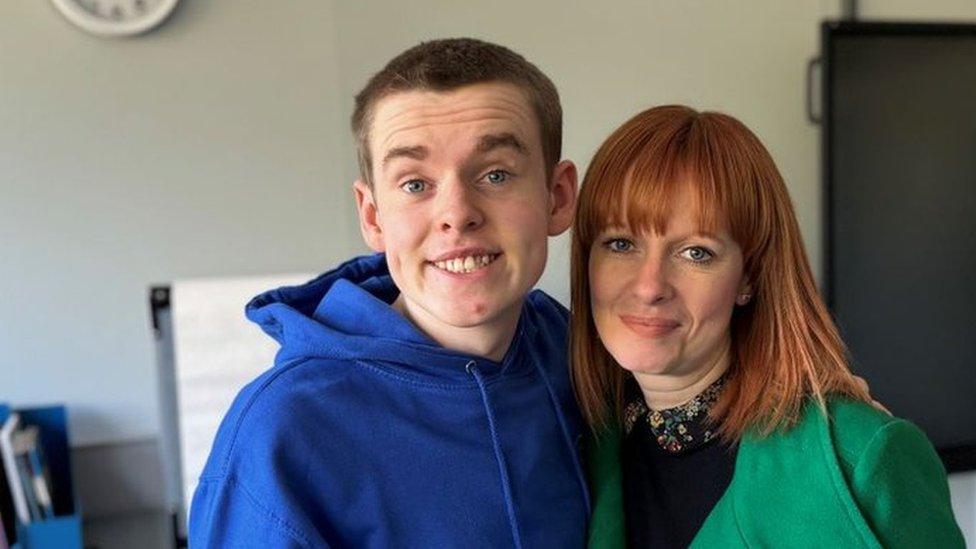
Alma White told BBC News NI there will be limited options available to her son when he leaves full-time education
An independent review of Northern Ireland's education system, published in December, said that many like Caleb face "particular difficulties at the point of leaving school and embarking upon adult life".
The review called for more education, training and employment support for young people with SEN.
This issue is not unique to Northern Ireland.
In April, the House of Lords Public Services Committee held an evidence session as part of its ongoing inquiry into the transition of young, disabled people from education to employment.
In England, some organisations currently offer apprenticeships and Higher National Diplomas (HNDs) for children leaving school at 19.
But these are not widely on offer in Northern Ireland.
"I feel like they're lost in the system - they don't have a voice, they're not seen in society," Ms White continued.
"It just makes you feel there's no hope, if this is where we are now. It is discrimination."
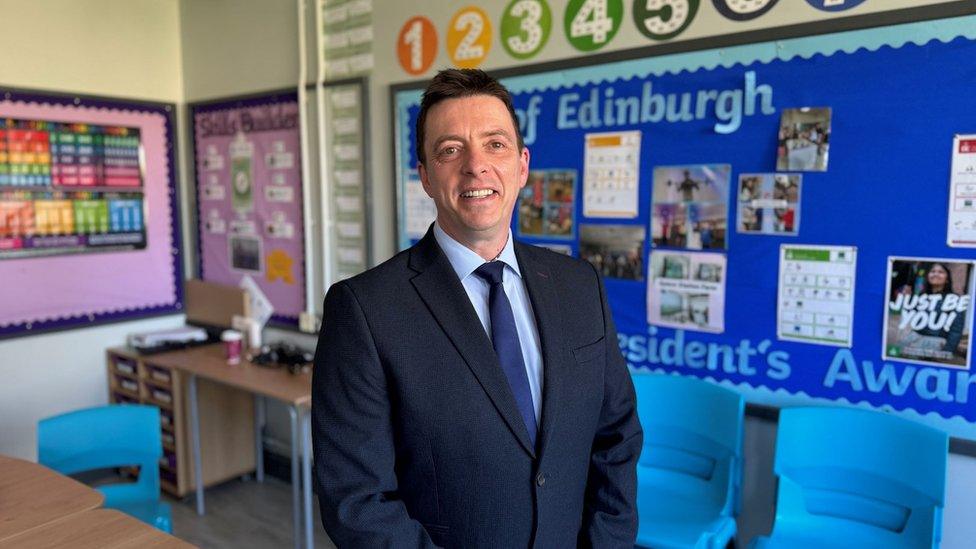
Harberton Special School principal James Curran said the options are "very limited" for pupils with special educational needs leaving education
After extending the campus in 2021, Harberton Special School was able to provide further spaces for older children up to 19 years old.
Mr Curran said pupils at his school have "education, transport to and from school, and support five days a week for most of their lives".
"However, when they finish school, there is a real lack of anything for our children to meaningfully engage with.
"There needs to be a bigger discussion about where these children fit when they become young adults in society," Mr Curran added.
"They can't be forgotten about and they can't be left to sit at home with parents who are ageing and have their own responsibilities - it's a wider systemic and social issue."
Related topics
- Published9 April 2024

- Published24 April 2024
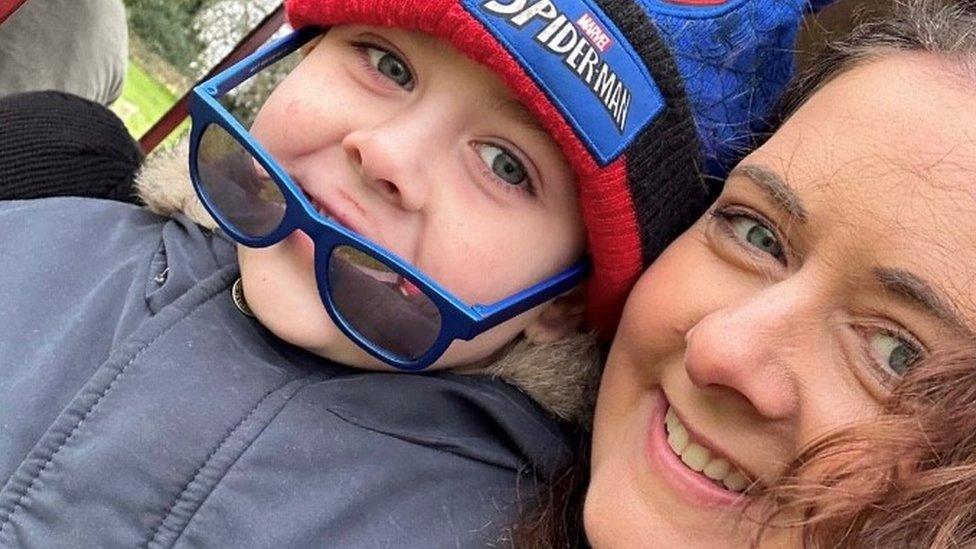
- Published21 March 2024
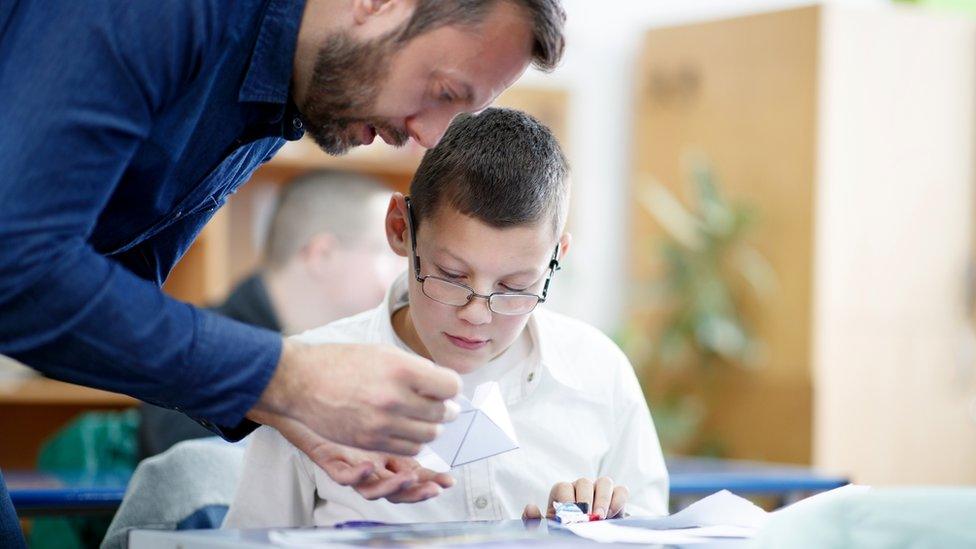
- Published6 July 2023
